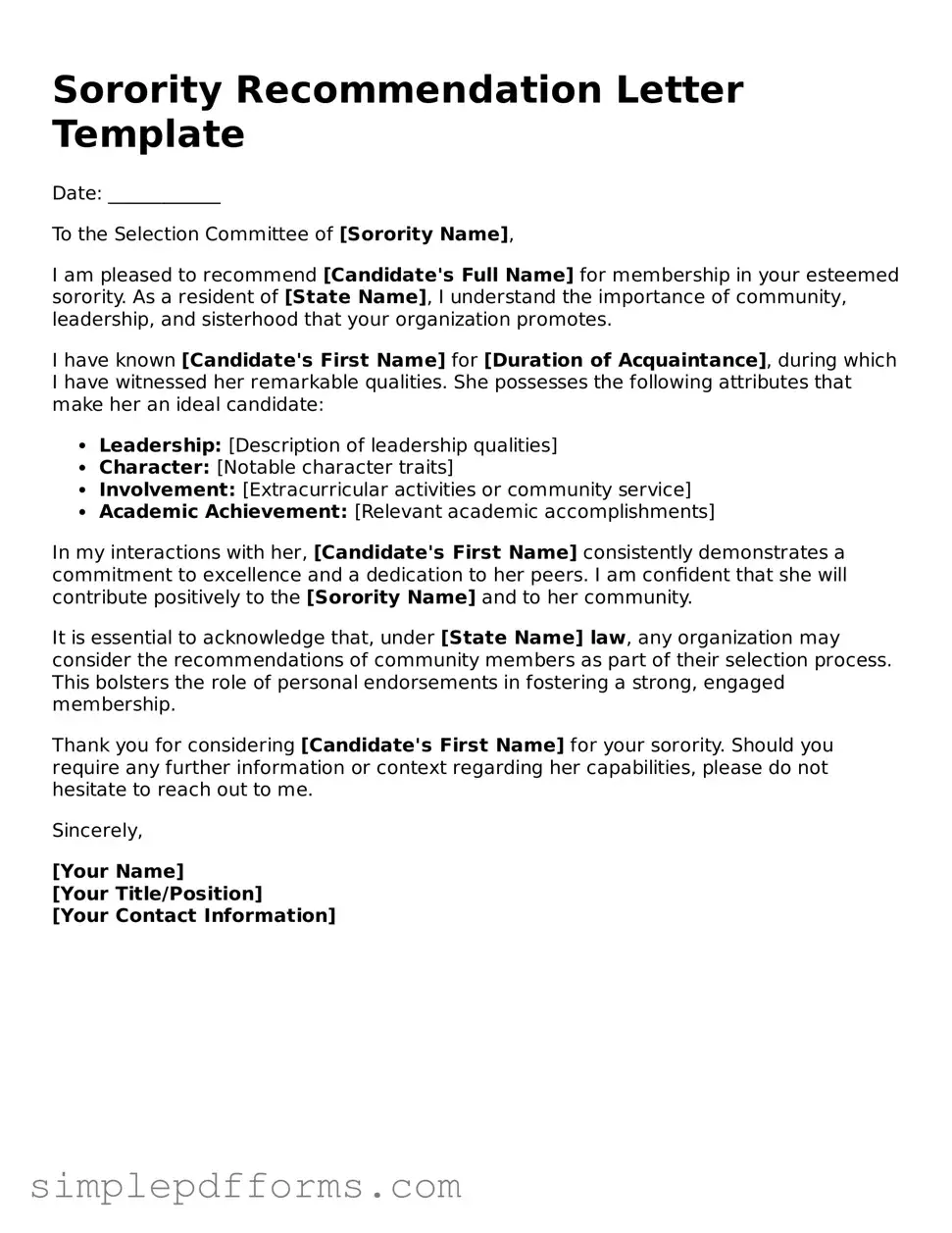Free Sorority Recommendation Letter Form
The Sorority Recommendation Letter form is a crucial document that supports a potential new member's application to a sorority. This form typically includes insights about the candidate's character, achievements, and potential fit within the sorority's community. Understanding its purpose and components can significantly enhance a candidate's chances of receiving a bid.
Open Sorority Recommendation Letter Editor Now

Free Sorority Recommendation Letter Form
Open Sorority Recommendation Letter Editor Now

Open Sorority Recommendation Letter Editor Now
or
Get Sorority Recommendation Letter PDF Form
Your form is waiting for completion
Complete Sorority Recommendation Letter online in minutes with ease.